Prosperous & Starveall: Old Pots & Old Gods.
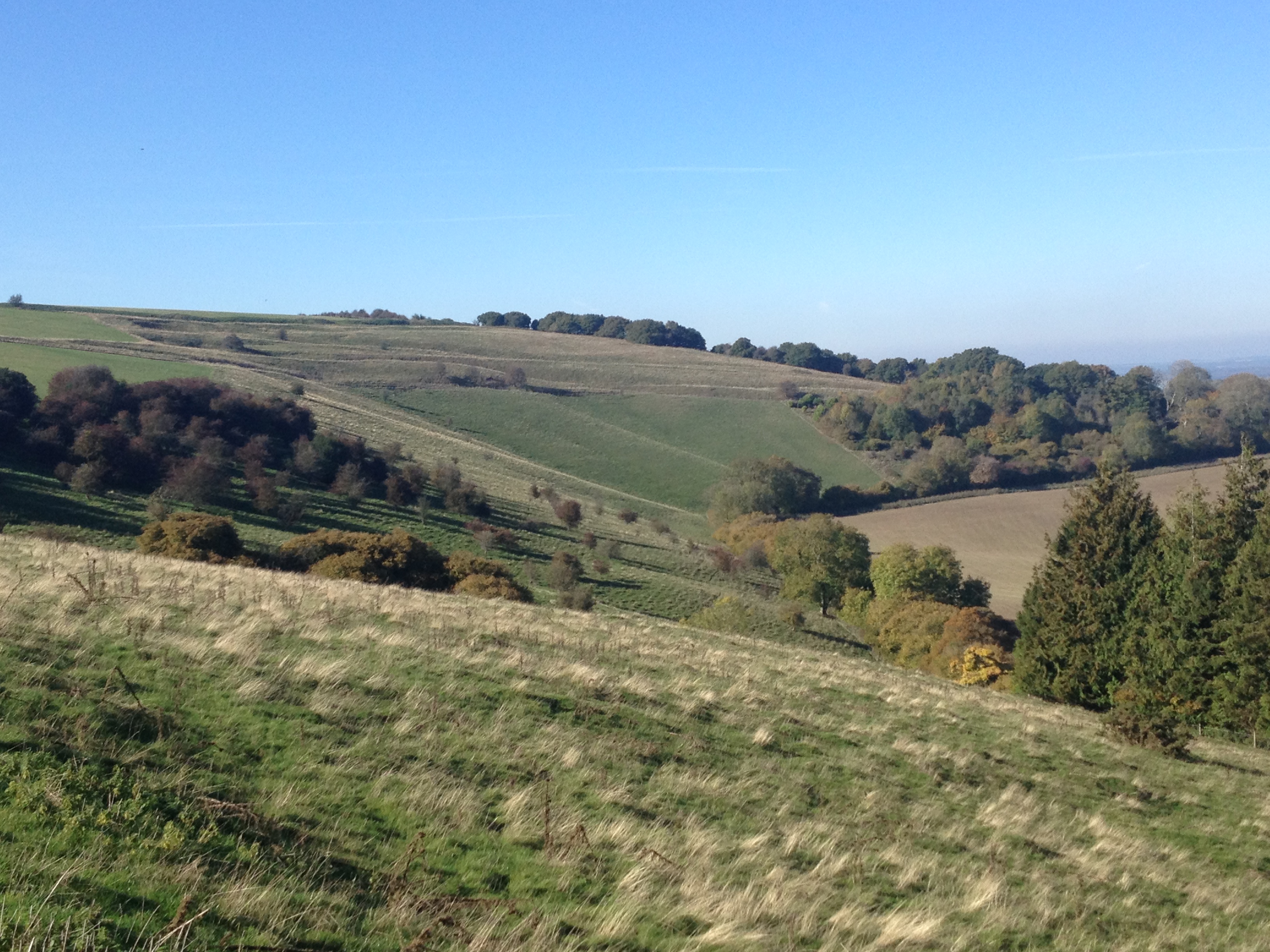
It’s been a week of climbing shining chalk tracks into china blue skies. High on the downs, the views open up to Pilot Hill and Siddown Warren, then Ladle Hill, Watership and White Hill. At Granny’s Lane, a weasel shoots across gleaming flints, as if someone pulled it across on a string; it disappears down a hole between tree roots, like a mouse stretch limo.

Halfway up another chalk holloway, an excavator has dug a drainage hole and unearthed an old, household rubbish dump. Littered across chalk dirty as a remnant snow drift are dozens of Shippams Paste jars, potsherds, the spout of a tin teapot, the shards of a stoneware marmalade jar and the curve of a vintage teacup. Most movingly, there is half a pudding bowl, its inside marked with whisking, beating and creaming spoons – though not the softer, folding-ins of flour, crooked between a comforting arm and the curve of a waist. Given the date of the dump (Mum puts it at early 1940s) I wonder whether it was also used as a template for haircuts?
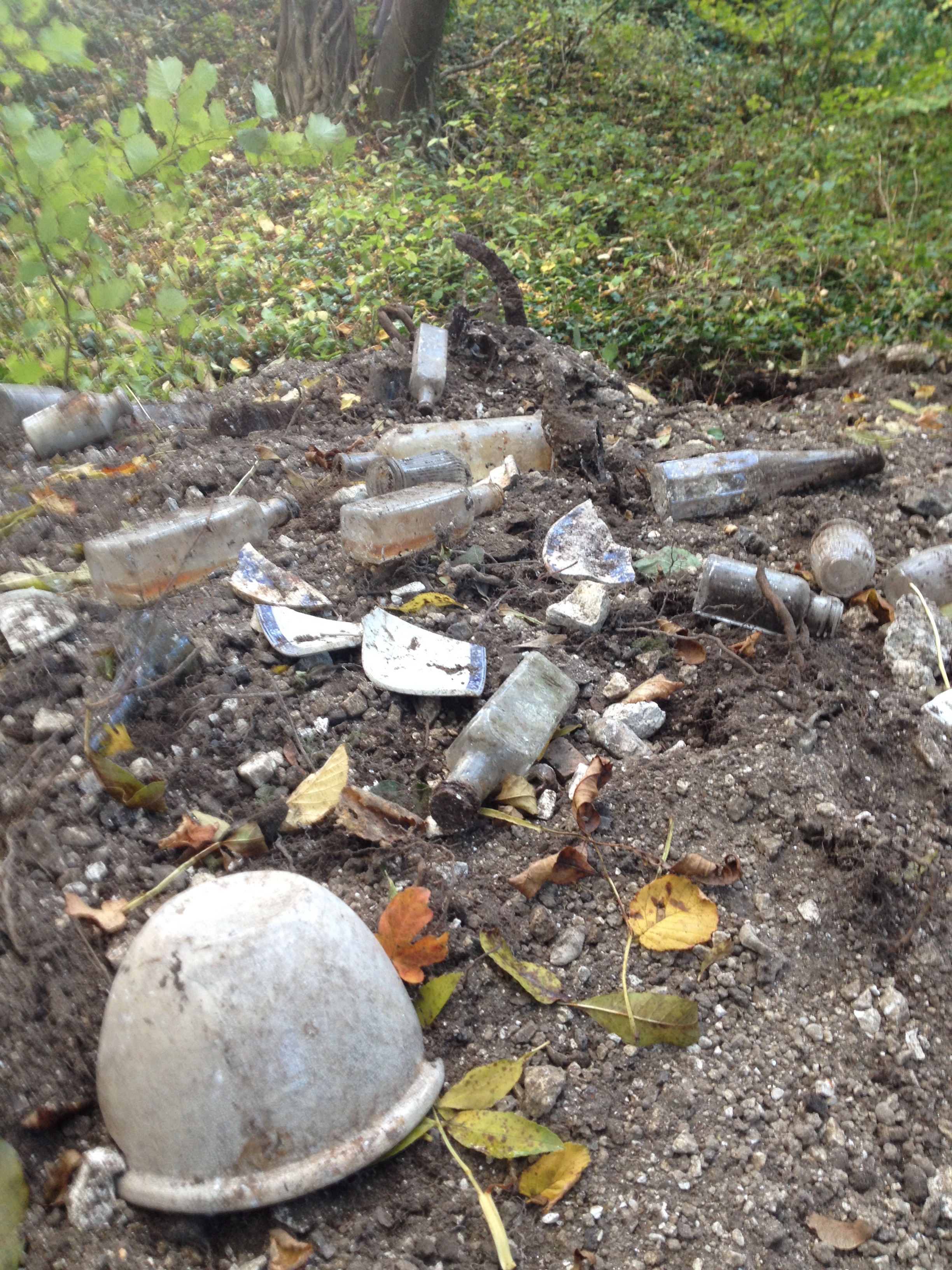
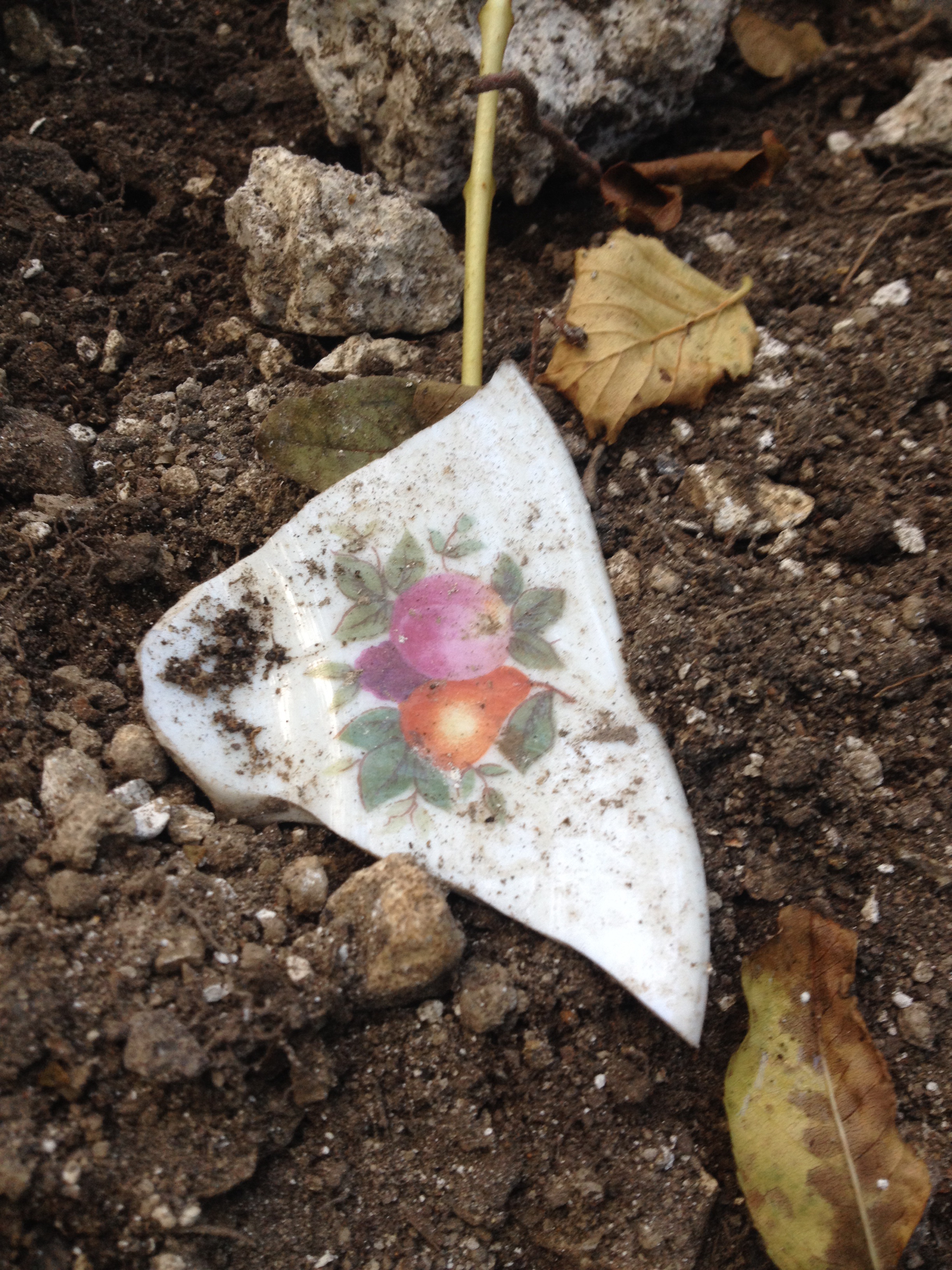
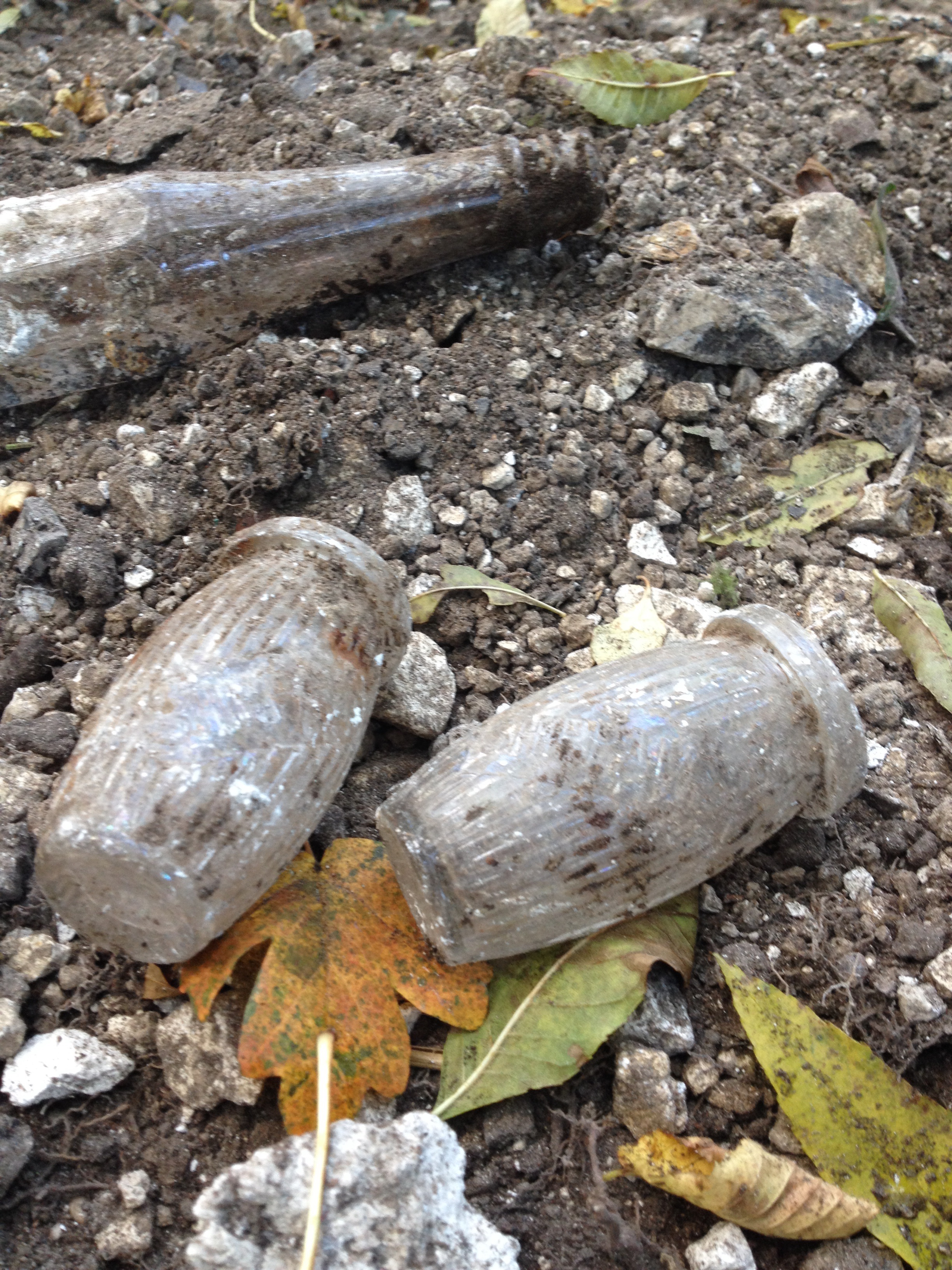
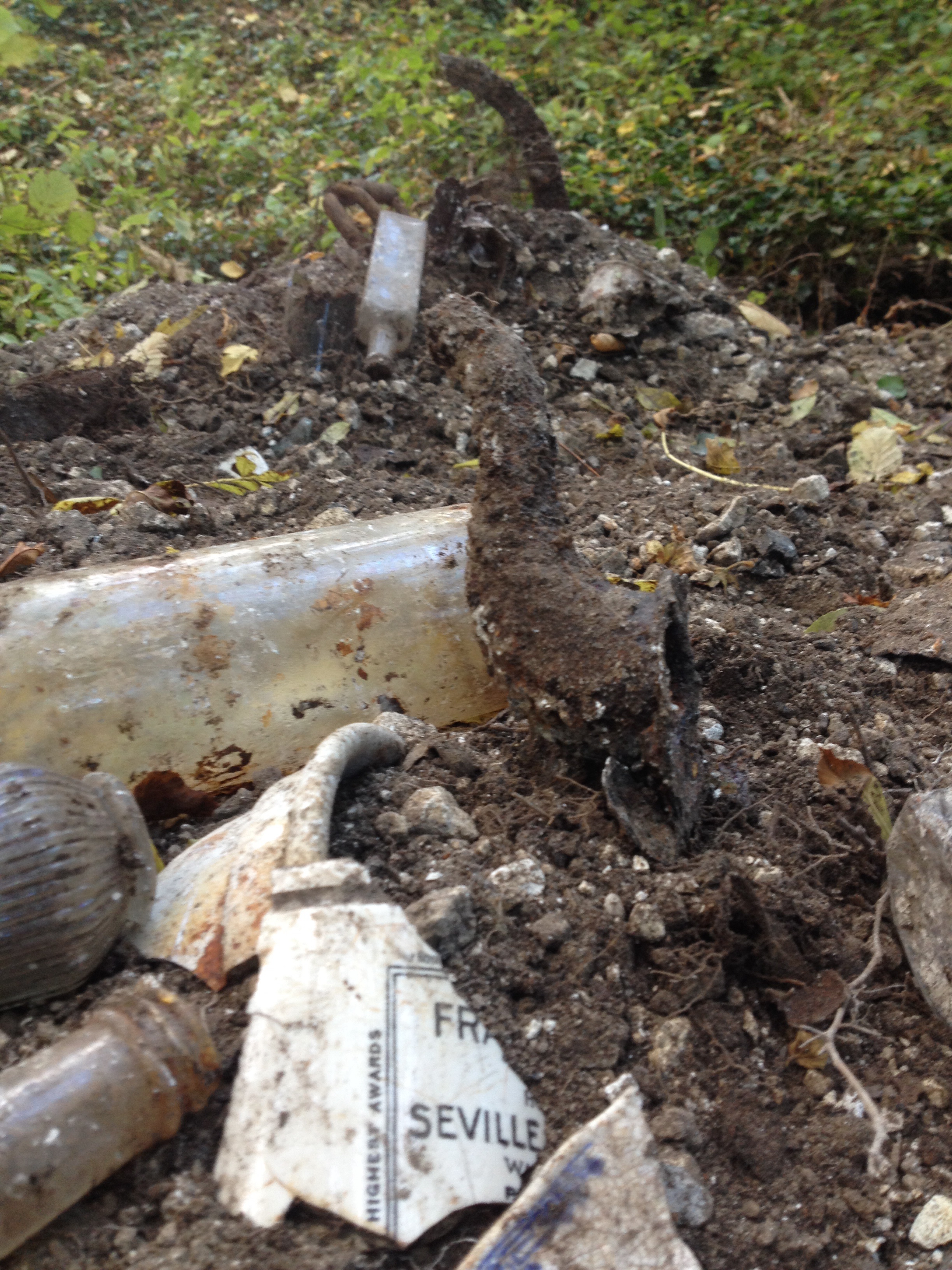
In sight of Starveall, we walk on to Prosperous, home of 18th Century agriculturalist, Jethro Tull, who invented the seed drill and hoe credited with revolutionising arable farming. I wonder what he’d make of farming today – what starves and what prospers? The sun starts to dip and flushes the upper air with gold as we walk through the old farms of Coldharbour, Anvilles and Totterdown. Flocks of fieldfare and redwing barrel in on the chilly north wind, bolstered by blackbirds, robins and goldcrests from colder lands than ours.

We are loud through the fallen leaves in the wood, yet a forgotten sound arrests me all the same. I hold back and listen: it comes again, now loud and clear – a guttural bark – a raven? Then the penny drops and with it a fresh shower of leaves and a gathering of senses: the freshly flayed white bark of an elder tree jumps out at me, and above the autumnal scent of leaf must and tar spot fungus comes the strong smell of churned earth, moss, crushed bracken and, crucially, ammonia. The deer are rutting here. I can hear the boar-like, belching grunt and bellow of a fallow buck, close by.
I move carefully, crouching towards it through the thick, tangled understorey until I glimpse a spotted flank and the wobble of a thick neck with its Adam’s apple enlarged by testosterone. There is the sense of a head turned to me. I can’t make out antlers, but I can see part of an elaborate headdress, like a camouflaged soldier’s helmet on Salisbury Plain. The deer has ornamented its wide rack of antlers impressively and I can see a black nose heavily fringed with moor grass and a crown of bracken. I feel I’ve been spotted by an old, old God. Herne the hunter, not the hunted.
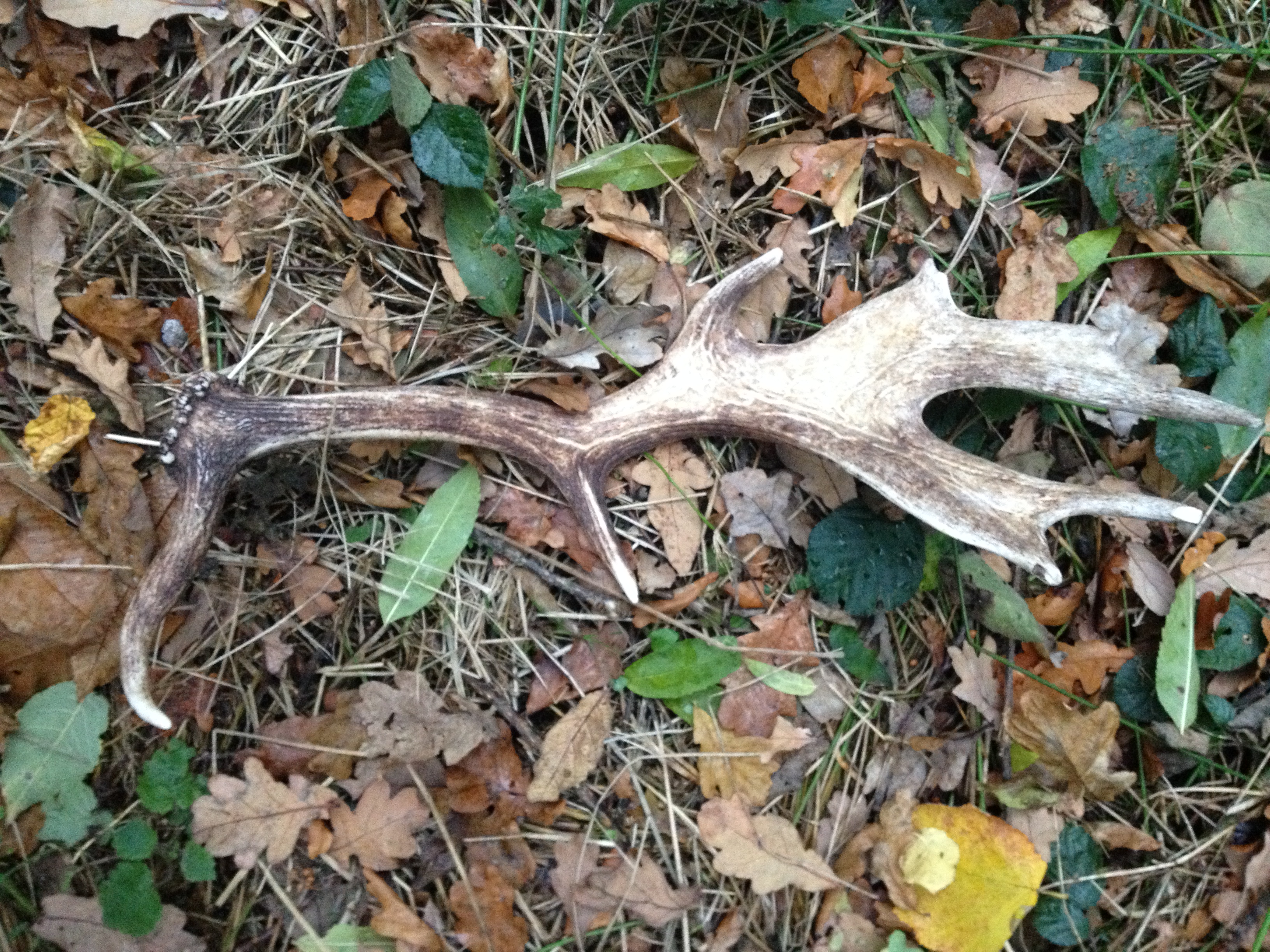
There is a hot flare of musky scent. I wonder what I smell like to him? I’ve not come prepared for fieldwork; I am wearing perfume, and the scent of a fried breakfast cooked in honour of my son’s seventeenth birthday clings to my hair, the smell of baking to my clothes and overall, there is the damp wool smell of my coat. The deer stamps a foot. The wood fills with golden light as the sun goes down and I sensibly back away. As I leave the wood for the open fields, the boar-like grunting starts up again. An ancient, clarion call, it is picked up by a passing raven, echoed back and taken up into the sky.
Leave a comment